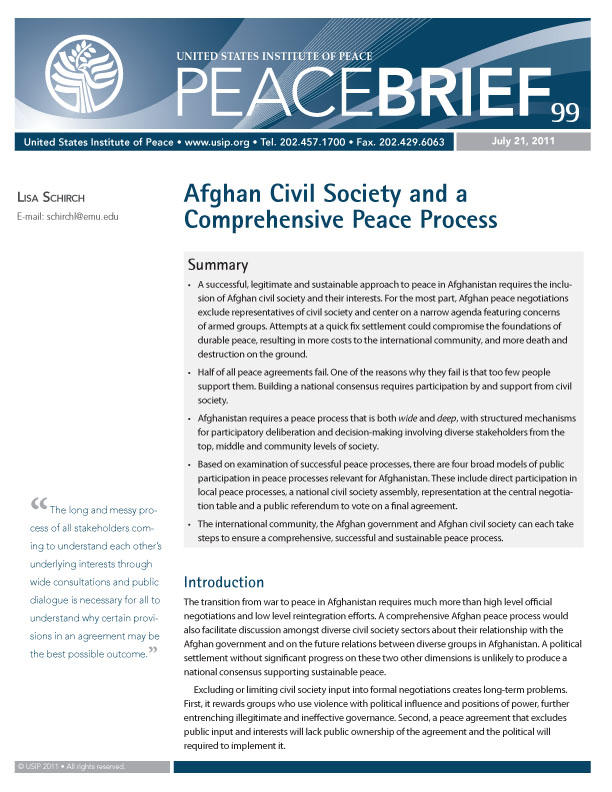Afghan Civil Society and a Comprehensive Peace Process
The peace brief summarizes key findings of the field research undertaken during five trips to Kabul, Afghanistan and one trip to Pakistan between 2009 and 2011.

Summary
- A successful, legitimate and sustainable approach to peace in Afghanistan requires the inclusion of Afghan civil society and their interests. For the most part, Afghan peace negotiations exclude representatives of civil society and center on a narrow agenda featuring concerns of armed groups. Attempts at a quick fix settlement could compromise the foundations of durable peace, resulting in more costs to the international community, and more death and destruction on the ground.
- Half of all peace agreements fail. One of the reasons why they fail is that too few people support them. Building a national consensus requires participation by and support from civil society.
- Afghanistan requires a peace process that is both wide and deep, with structured mechanisms for participatory deliberation and decision-making involving diverse stakeholders from the top, middle and community levels of society.
- Based on examination of successful peace processes, there are four broad models of public participation in peace processes relevant for Afghanistan. These include direct participation in local peace processes, a national civil society assembly, representation at the central negotiation table and a public referendum to vote on a final agreement.
- The international community, the Afghan government and Afghan civil society can each take steps to ensure a comprehensive, successful and sustainable peace process.
About This Brief
This brief is based on research undertaken during five trips to Kabul, Afghanistan and one trip to Pakistan between 2009 and 2011. The peace brief summarizes key findings of the field research that will be discussed in detail in a forthcoming USIP special report. The author’s conclusions and recommendations are her own.
Author Dr. Lisa Schirch is the founding director of 3P Human Security: Partners for Peacebuilding Policy, a university-based nongovernmental organization, and a research professor at Eastern Mennonite University’s graduate Center for Justice & Peacebuilding.



